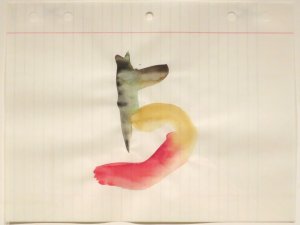A Quote by Bradford Cox
That's what culture is based on, the passing down of a certain narrative by imitation.
Related Quotes
There is commerciality in storytelling, even in a film or a piece of literature. These things exist. That's why stories came to be: to hold attention and, while you're not looking, you'll get hopefully some nutritional value that the author has been working up. That's narrative; that's passing stuff down.
Imitation is very easy, and the whole culture and society depends on imitation. Everybody is telling you how to behave, and whatsoever they are teaching you is nothing but imitation. Religious people - the so-called religious people, the priests, the theologians - they are also teaching you, `Be like Jesus, be like Buddha, be like Krishna.` Nobody ever tells you, `Just be yourself` - nobody. Everybody is against you, it seems. Nobody allows you to be yourself, nobody gives you any freedom. You can be in this world, but you must imitate somebody.
If you're a certain type of actor, then eventually stepping into a director's shoes is a natural transition. I've always been the actor who's very focused on the narrative, where my character is in the story, and how I can benefit the story. I've always had a technical aspect of what the lens is, how the camera is going to move, how I can feed the information the director applies within that move. If you're that type of actor, narrative-based, technically proficient, the next step is actually not that far.
The post-Second World War simple system of social democracy and organized labour has fragmented massively, but just because people aren't organized in workplace trade unions doesn't mean they aren't in associations with other people - work-based, place-based, culture-based, sport-based, faith-based - there's a bit of an old rainbow coalition argument.
In many other cultures, and certainly in the Eastern world, there's great value put on being, contemplating, and even withdrawing from the world at certain times or for certain periods of time. But we don't really have that in our culture, so it's difficult for many Westerners to learn how to sit down or lie down and just be quiet without going to sleep. We're just not trained to do it.
My choice of colors does not rest on any scientific theory; it is based on observation, on feeling, on the experience of my sensibility. Inspired by certain pages of Delacroix, an artist like Signac is preoccupied with complementary colors, and the theoretical knowledge of them will lead him to use a certain tone in a certain place. But I simply try to put down colors which render my sensation.
Say you have a headline like "Mountain Bike Stolen," and then you read the story, read another story about it the next day, and then the next week, and then the next year. News is a process of expansion, the filling in of detail, and making narrative connections - not based on chronology, but based on features of the story. There are narrative connections made between props, between characters, between situations, and so forth.




































